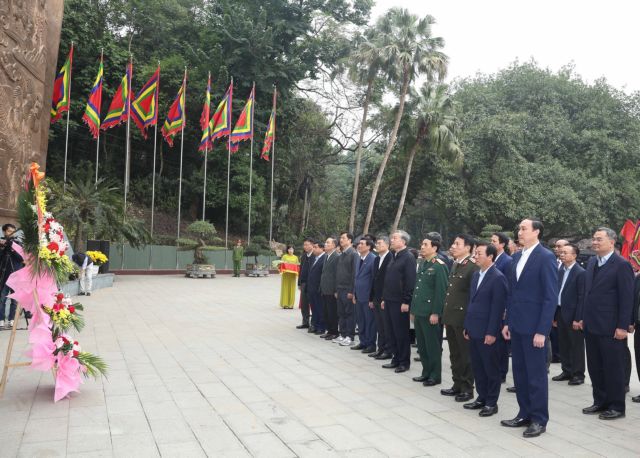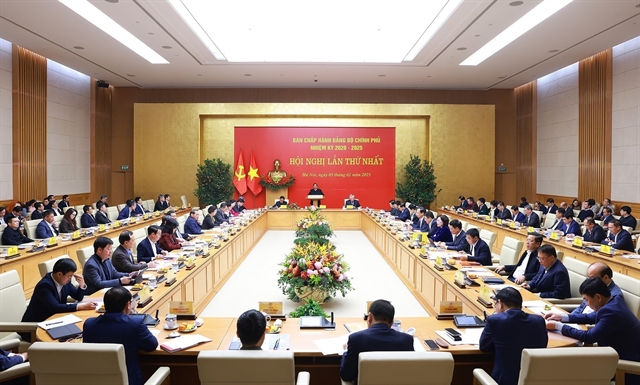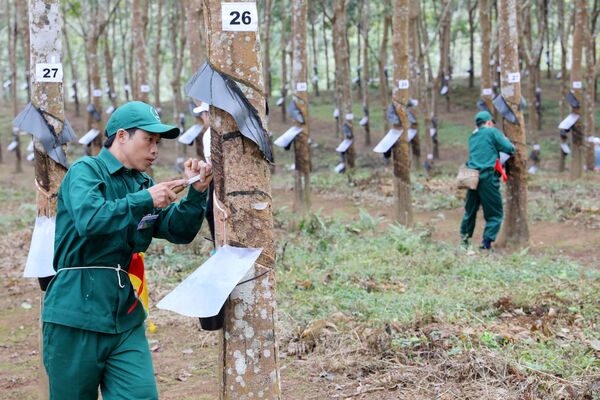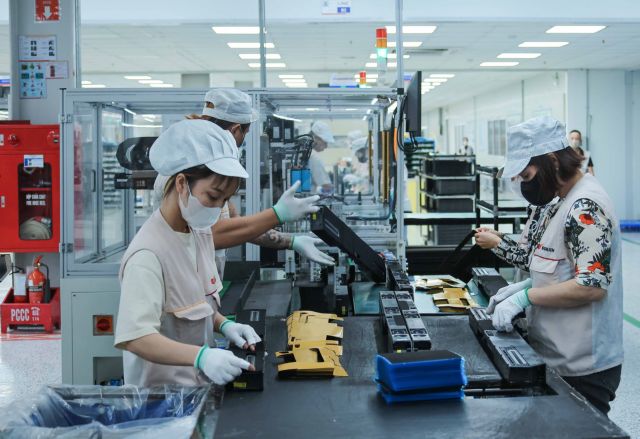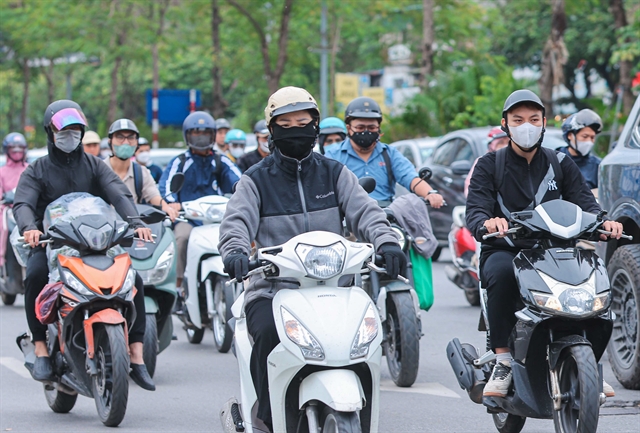

“Outcomes of bone marrow mononuclear cell transplantation combined with interventional education for autism spectrum disorder" by scientists at Vinmec Research Institute of Stem Cell and Gene Technology (VRISG).
The internationally renowned scientific journal STEM CELLS Translational Medicine (Wiley Publishing House, USA), in its September 2020 issue, published the study “Outcomes of bone marrow mononuclear cell transplantation combined with interventional education for autism spectrum disorder" by scientists at Vinmec Research Institute of Stem Cell and Gene Technology (VRISG). This work has helped Việt Nam become one of the pioneers in research and application of stem cell therapy to treat autism spectrum disorder (ASD).
"Outcomes of bone marrow mononuclear cell transplantation combined with interventional education for autism spectrum disorder" is a study conducted by Vinmec in cooperation with Stanford University (USA) and Keele University (UK) from 2016. Accepted by the Ministry of Health in September 2019, this is the first ever study on stem cell therapy in the treatment of autism in Việt Nam.
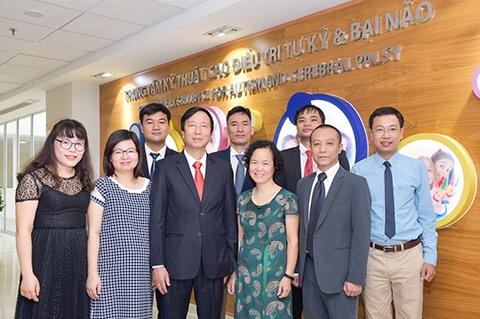
|
Vinmec team of scientists involved in the cell transplantation combined with interventional education for autism spectrum disorder study
Vinmec's research is more comprehensive compared with previous international studies on treatment of children with ADS by stem cell transplantation. There are many outstanding advantages from clinical assessment to brain metabolism assessment by Positron emission tomography‐computed tomography (PET‐CT) and whole exome sequencing test of patients and their parents. The results of the study show that the combination of cell therapy and educational intervention may improve clinical manifestations in children with ASD In the study, patients received two autologous stem cells and two transplantations of high-dose bone extraction which were transmitted through the spinal cavity to get the most access to the brain. In addition to stem cell transplantation, children also received combined treatment with active interventional education. Specially, Vinmec scientists also conducted genome analysis of children with ASD and their parents to find genetic mutations, evaluate the effect of genetic mutations on response to treatment, and progression after stem cell transplantation, etc.
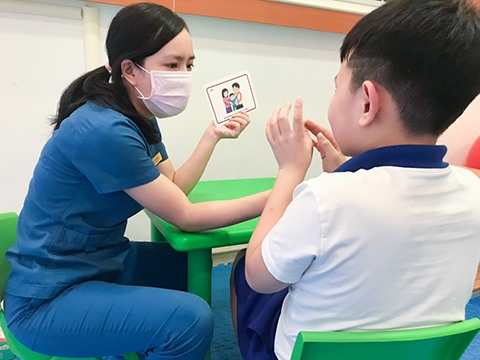
|
Children are assessed before and after treatment by special education intensive teachers who were not members of the research team to ensure objective results.
Clinical examinations were performed before and after the first transplantation by an experienced paediatric psychologist and a paediatric psychiatrist who were not members of the research team to ensure the objectivity and reliability of the results. In addition to expert assessment, the study also collected assessment results from teachers and parents to ensure results were determined in a multidimensional manner. In the study, all children received 18 months of follow‐up after the first transplantation which exceeds those in other recent reports. The researchers noticed that the longer the follow‐up duration was, the better the results were demonstrating the sustainability of treatment effects.
Appreciating the significance of Vinmec’s autism study, in a special article introducing this study, Prof. MD Anthony Atala, Editor‐in‐Chief of Stem Cells Translational Medicine and Director of the Wake Forest Institute for Regenerative Medicine (United States) emphasised that: “The clinical finding showing that the cell therapy treatment safely reduced severe autism spectrum disorder characterisations in children is encouraging. The findings are promising and open the opportunity for the development of a translational medicine approach that could help affected children.”
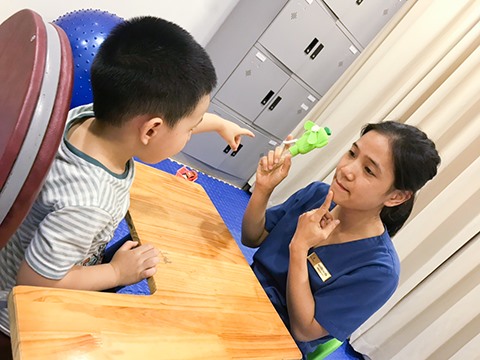
|
The combination of stem cell transplantation and interventional education for children with ASD improved their social communication, language, and daily skills.
The study shows that high-dose autologous stem cell transplants combined with educational intervention is a safe and effective method. After stem cell transplantation, 90% of children with ASD improved markedly their social communication, language, and daily skills. Before transplantation, expressive language occurred in 47% of children only but after transplantation did the figure increase to 93%. The rate of children with hyperactivity disorder decreased by 50%; the number of children who could go to school without support increased. Besides, the severity of ASD decreased remarkably.
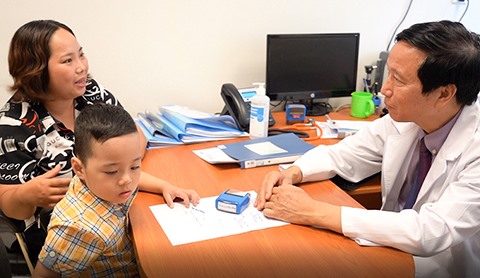
|
The results of the combination of stem cell transplantation and interventional education for children with ASD by Vinmec are evaluated to be promising and open the opportunity for improvement of health for affected children.
The study "Outcomes of bone marrow mononuclear cell transplantation combined with interventional education for autism spectrum disorder" has helped Việt Nam become a pioneering countries in research on using stem cells to treat autism, contributing to improving the quality of life of children with ASD.
As an internationally renowned scientific journal, the STEM CELLS Translational Medicine is Q1 - Top prestigious journals in the field of stem cell application in the world with an Impact Factor of 6,429. This study is the second scientific paper on ASD by Vinmec in the past three years published by international journals. Previously, in November 2019, Vinmec published its scientific article on Investigation of genetic mutations in Vietnamese children with autism spectrum disorder. These new findings of Vinmec are a solid foundation in the development of autism spectrum screening, diagnosis and treatment methods.
Reference information
As reported by the US Centers for Disease Control and Prevention (CDC), the overall autism spectrum disorder prevalence was of 18 per 1000 children aged eight years old. Autism spectrum disorder (ASD) is a complex spectrum of disorders characterised by deficits of social communication and interaction; the presence of restricted interests as well as repetitive and stereotypic verbal and nonverbal behaviors. Comorbidities including sleep disorders, seizures, and gastrointestinal difficulties are very common in children with ASD.
Established in October 2016, Vinmec Research Institute of Stem Cell and Gene Technology (VRISG) is a strategic research unit in the field of biomedical science invested and developed by Vingroup. VRISG aims to become a leading research institute in stem cell research and application by 2030. In addition to stem cell transplantation studies for autism treatment, VRISG also has conducted numerous studies on treatment of cerebral palsy, cirrhosis, congenital biliary atrophy, spinal cord injury, blood diseases, etc., and achieved many positive results with dozens of published scientific papers. VRISG's outstanding achievements with genetic and stem cell research show Vinmec's proper academic approach, contributing to the sustainable development of the healthcare sector in Việt Nam.

